
Erfurt: The Medieval Heart of Germany
Erfurt, the capital city of Thuringia, is a gem waiting to be discovered. With its well-preserved medieval architecture, Erfurt invites you to step back in time. The city's old town, one of the best-preserved in Germany, is a maze of narrow, cobblestone streets lined with half-timbered houses and charming shops. A visit to Erfurt is like walking through a living history book. One of the city's highlights is the Erfurt Cathedral, also known as St. Mary's Cathedral. This impressive Gothic structure dominates the city skyline and offers stunning views from its steps. Just beside it stands the Church of St. Severus, adding to the city's rich architectural tapestry. Don't miss the Krämerbrücke, a unique bridge lined with half-timbered buildings housing boutiques and cafes. It's one of the few inhabited bridges in Europe. Erfurt is also known for its vibrant cultural scene. The city hosts numerous festivals throughout the year, celebrating everything from flowers to light art. The Egapark, one of the largest and most beautiful garden parks in Germany, is a must-see, especially in spring when it bursts into bloom. For history enthusiasts, the Old Synagogue, one of the oldest synagogues in Europe, offers a deep dive into the city's Jewish heritage. Finally, Erfurt's culinary scene is a delightful blend of traditional German fare and modern cuisine. Be sure to try local specialties like Thuringian sausages and Erfurt's own unique beer. With its mix of history, culture, and gastronomy, Erfurt is a destination that offers something for every traveler.
Local tips in Erfurt
- Visit the Erfurt Cathedral early in the morning to avoid crowds and enjoy the peaceful atmosphere.
- Take a walk on the Krämerbrücke bridge and explore its unique shops and cafes.
- Plan your visit during one of Erfurt's many festivals for a lively and colorful experience.
- Spend an afternoon in the Egapark, especially during spring and summer when the gardens are in full bloom.
- Try the local Thuringian sausages and Erfurt beer at a traditional German restaurant.
Neighbourhoods in Erfurt
Erfurt: The Medieval Heart of Germany
Erfurt, the capital city of Thuringia, is a gem waiting to be discovered. With its well-preserved medieval architecture, Erfurt invites you to step back in time. The city's old town, one of the best-preserved in Germany, is a maze of narrow, cobblestone streets lined with half-timbered houses and charming shops. A visit to Erfurt is like walking through a living history book. One of the city's highlights is the Erfurt Cathedral, also known as St. Mary's Cathedral. This impressive Gothic structure dominates the city skyline and offers stunning views from its steps. Just beside it stands the Church of St. Severus, adding to the city's rich architectural tapestry. Don't miss the Krämerbrücke, a unique bridge lined with half-timbered buildings housing boutiques and cafes. It's one of the few inhabited bridges in Europe. Erfurt is also known for its vibrant cultural scene. The city hosts numerous festivals throughout the year, celebrating everything from flowers to light art. The Egapark, one of the largest and most beautiful garden parks in Germany, is a must-see, especially in spring when it bursts into bloom. For history enthusiasts, the Old Synagogue, one of the oldest synagogues in Europe, offers a deep dive into the city's Jewish heritage. Finally, Erfurt's culinary scene is a delightful blend of traditional German fare and modern cuisine. Be sure to try local specialties like Thuringian sausages and Erfurt's own unique beer. With its mix of history, culture, and gastronomy, Erfurt is a destination that offers something for every traveler.
When is the best time to go to Erfurt?
Iconic landmarks you can’t miss
Domplatz
Explore Domplatz in Erfurt, a stunning historical square surrounded by iconic architecture and vibrant local culture.
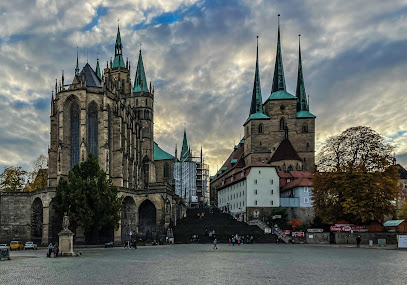
Egapark
Discover Erfurt's Egapark: A vibrant tapestry of themed gardens, playgrounds, and horticultural history awaits in this sprawling oasis of natural beauty and recreational delight.
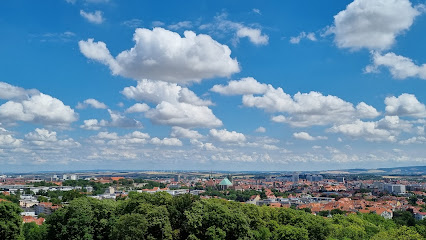
Erfurt Cathedral
Discover Erfurt Cathedral, a majestic Gothic landmark in the heart of Germany, boasting stunning architecture, rich history, and the world-famous Gloriosa bell.
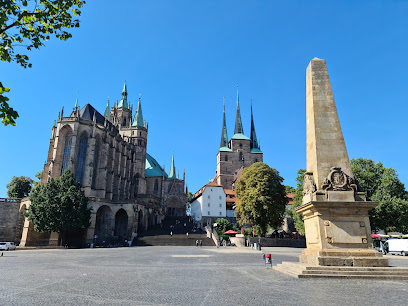
Krämerbrücke
Discover the Krämerbrücke in Erfurt, a medieval marvel and Europe's longest inhabited bridge, where history comes alive amidst artisan shops and charming half-timbered houses.
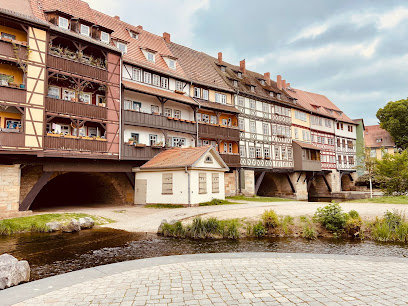
Hirschgarten
Escape to Erfurt's historic Hirschgarten: A tranquil green space in the city center offering relaxation, recreation, and a touch of history for locals and tourists alike.
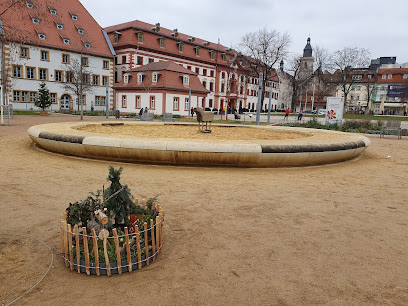
Protestant Augustinian Monastery Erfurt
Explore the former home of Martin Luther, a 13th-century monastery in Erfurt's old town, offering historical insights, spiritual reflection, and architectural beauty in the heart of Germany.
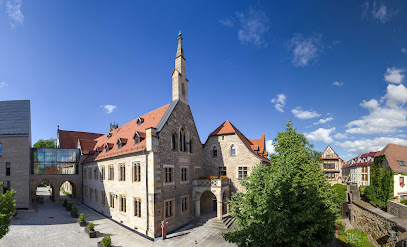
City Park (Stadtpark)
Discover Erfurt's City Park: A historic green oasis offering tranquil pathways, sculptures, and a vibrant community atmosphere, perfect for relaxation and recreation.
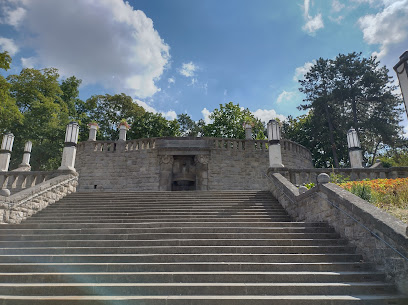
Brühler Garten
Discover a peaceful retreat in Erfurt's Brühler Garten, a historic park offering a blend of tranquility, recreation, and a glimpse into the city's layered past.
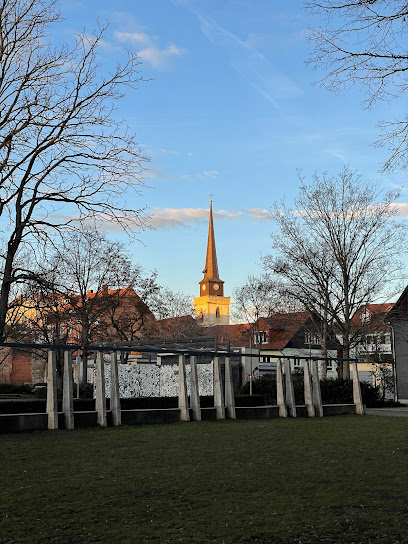
Old Synagogue
Explore one of Europe's best-preserved medieval synagogues, now a museum showcasing Erfurt's rich Jewish history and the remarkable Erfurt Treasure, a UNESCO World Heritage site.

Bernd the bread
Meet Bernd das Brot, the perpetually pessimistic loaf of bread, at Erfurt's Fischmarkt, a quirky and iconic landmark that embodies German humor and children's television culture.
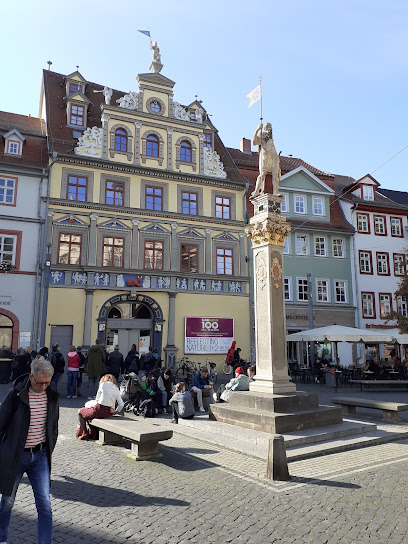
Barfüßerkirche
Explore the haunting beauty of Erfurt's Barfüßerkirche, a medieval Franciscan monastery church partially destroyed in WWII, now a museum and performance venue.
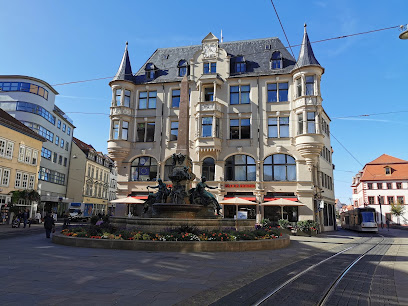
Maus und Elefant KIKA
Meet Maus and Elefant, the iconic characters from 'Die Sendung mit der Maus,' in Erfurt's heart, a whimsical tribute to German children's television and the city's media connection.
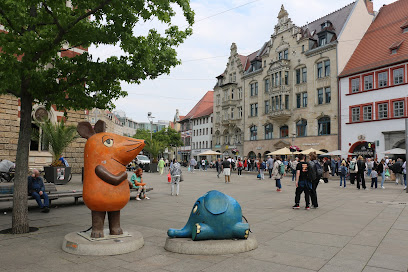
Peterskirche
Explore the Romanesque grandeur of Peterskirche on Erfurt's Petersberg, a historic Benedictine abbey turned cultural venue with panoramic city views and captivating exhibitions.
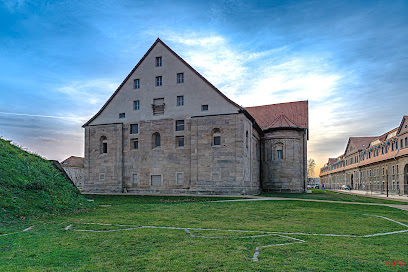
Breitstrom Castle Bridge
Discover Erfurt's Breitstrom Castle Bridge: A picturesque pedestrian bridge offering serene views and a glimpse into the city's rich history in the heart of the Altstadt.
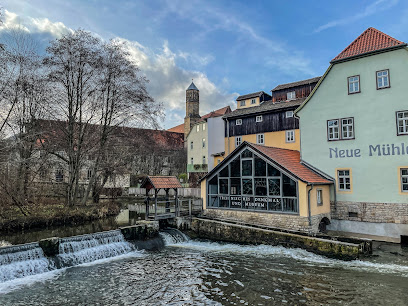
Erfurt Altstadt
Discover Erfurt Altstadt: A captivating blend of medieval charm, historical treasures, and vibrant culture in the heart of Germany, offering an unforgettable travel experience.
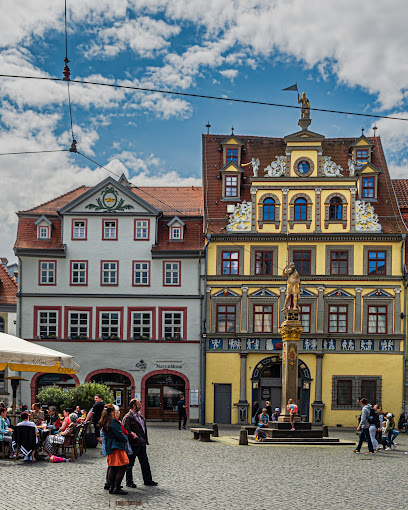
Unmissable attractions to see
Domplatz
Experience the historical allure of Domplatz, Erfurt's heart, where stunning architecture meets vibrant culture in Germany's medieval gem.
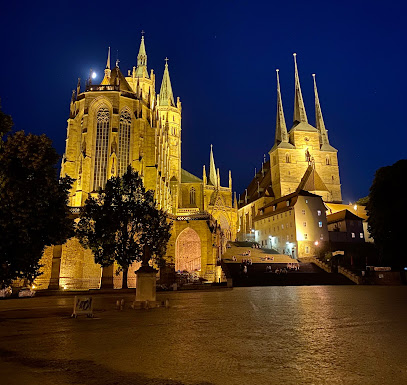
Thuringian Zoo Park, Erfurt
Explore Thuringian Zoo Park in Erfurt for a delightful mix of wildlife encounters and serene park landscapes, perfect for families and nature lovers.
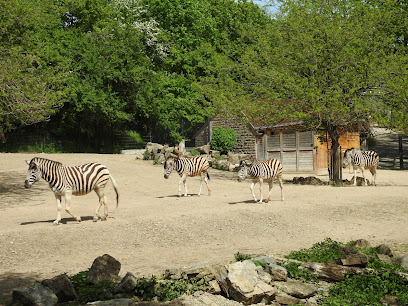
Egapark
Discover the breathtaking beauty of Egapark, a premier botanical garden and ecological park in Erfurt, Germany, perfect for nature lovers and families.
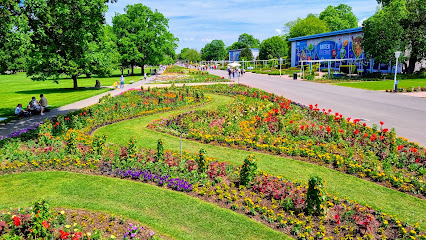
Erfurt Cathedral
Explore Erfurt Cathedral, a stunning Gothic masterpiece in Germany's historic Altstadt, blending rich history and breathtaking architecture.

Park an der Ilm
Explore the enchanting Park an der Ilm in Weimar, a historical park rich in culture and natural beauty, perfect for relaxation and leisure.
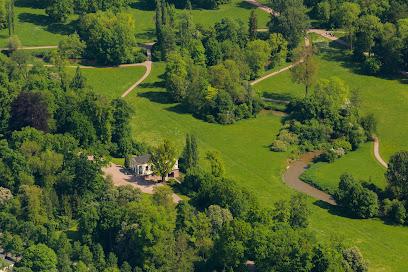
Schloss Belvedere
Explore the majestic Schloss Belvedere, a historical castle and park in Weimar, Germany, showcasing art, culture, and breathtaking landscapes.
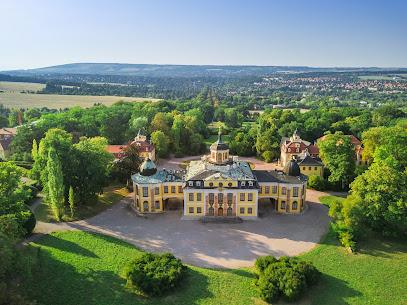
Hirschgarten
Explore Hirschgarten, a serene state park in Erfurt, perfect for families and nature lovers seeking tranquility amidst urban life.
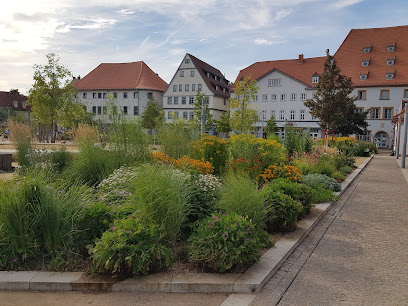
Naturkundemuseum
Discover the natural history of Erfurt at the Naturkundemuseum, where engaging exhibits reveal the wonders of biodiversity and geology.
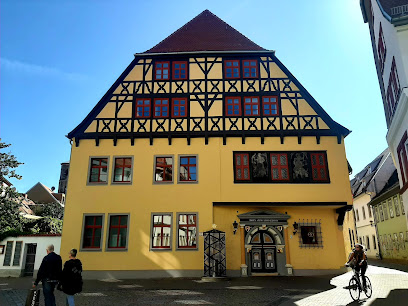
City Park (Stadtpark)
Explore the natural beauty and tranquility of Erfurt's City Park, a lush oasis perfect for picnics, leisurely strolls, and family fun.
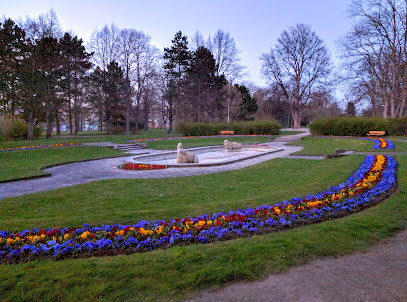
Deutsches Nationaltheater and Staatskapelle Weimar
Explore the rich heritage of German arts at the Deutsches Nationaltheater and Staatskapelle Weimar, a cultural landmark with a vibrant performance schedule.
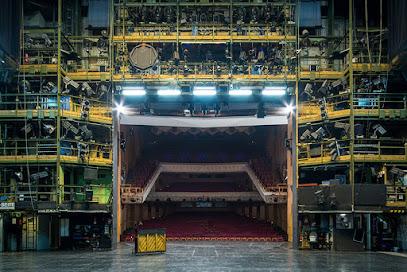
Old Synagogue
Explore the Old Synagogue in Erfurt, a historic museum showcasing centuries of Jewish heritage and culture in a stunning architectural setting.

Schiller's House
Discover the literary legacy of Friedrich Schiller at his historic home in Weimar, a cultural gem steeped in history and creativity.
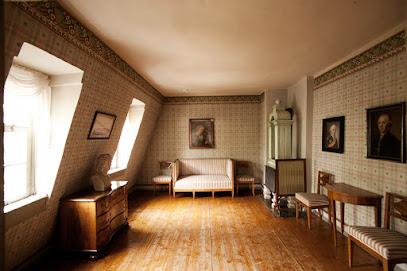
Bernd the bread
Discover the enchanting world of Bernd the Bread in Erfurt, where culinary creativity meets delightful baked goods in a family-friendly atmosphere.
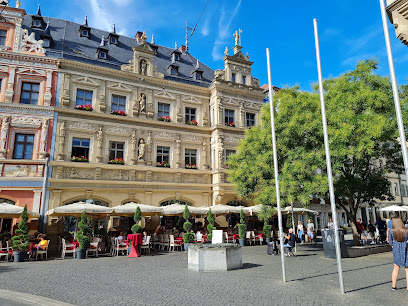
St George's Church
Explore the historic St. George's Church in Eisenach, where architectural beauty meets rich spiritual and cultural heritage.
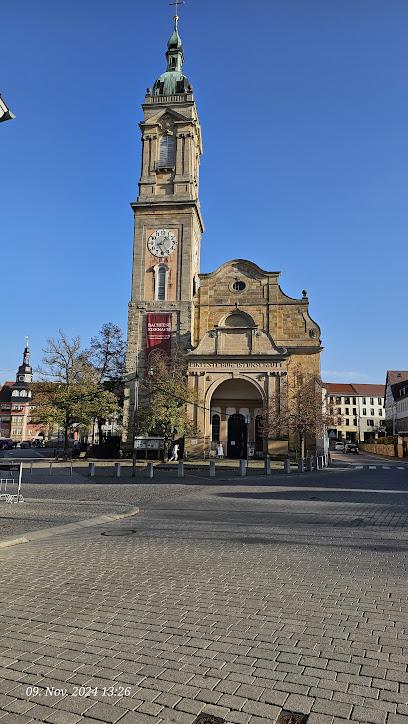
Duchess Anna Amalia Library
Discover the Duchess Anna Amalia Library, a UNESCO World Heritage site in Weimar, brimming with literary treasures and stunning architecture.
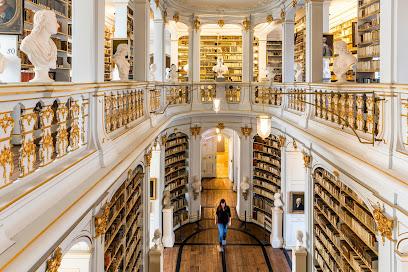
Essential places to dine
Wirtshaus Christoffel
Experience authentic Thuringian cuisine at Wirtshaus Christoffel in Erfurt - a culinary gem celebrating local flavors and traditions.
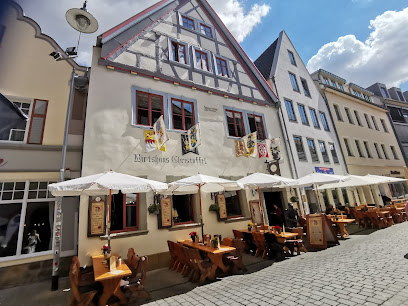
Ristorante Pavarotti
Experience authentic Italian flavors at Ristorante Pavarotti in Erfurt – where every dish tells a story and every scoop brings joy.
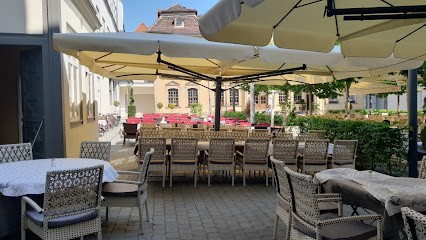
Gasthaus Feuerkugel
Discover authentic German flavors at Gasthaus Feuerkugel in Erfurt - a culinary gem offering traditional dishes in a charming setting.
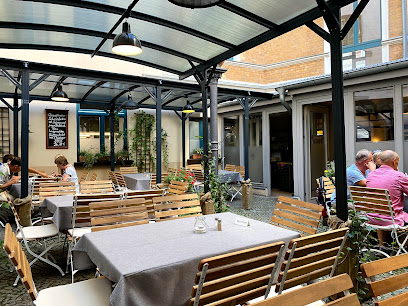
Texas Steaklounge
Experience the ultimate steak dining at Texas Steaklounge in Erfurt—where every meal is a celebration of flavor and hospitality.
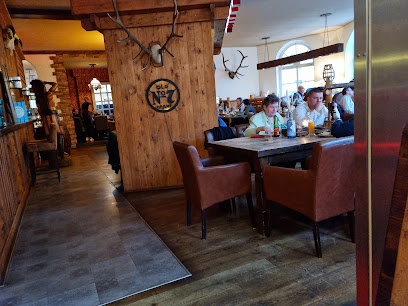
Louisiana - Steakhaus & Südstaaten-Restaurant
Discover authentic Cajun and Creole flavors at Louisiana - Steakhaus in Erfurt; where every meal is a journey to the heart of Southern cuisine.
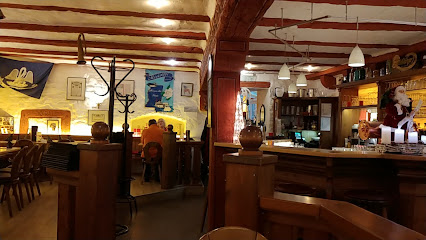
Glashütte Petersberg
Discover Glashütte Petersberg in Erfurt: A vibrant restaurant offering exquisite local cuisine, stunning views, and a lively atmosphere for every occasion.
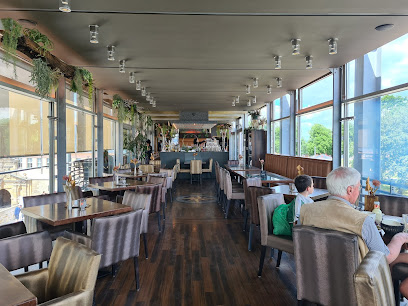
Zum Goldenen Schwan
Discover authentic Thuringian cuisine at Zum Goldenen Schwan in Erfurt - where tradition meets flavor in every bite.
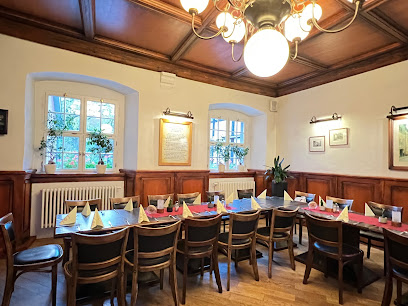
Restaurant Fellini
Discover authentic Italian cuisine at Restaurant Fellini in Erfurt's charming Altstadt – perfect for food lovers seeking delicious flavors.
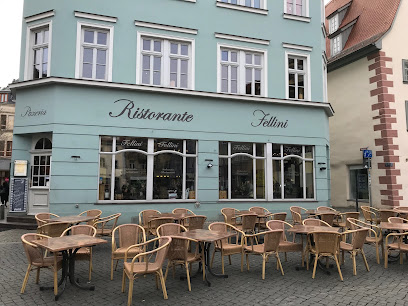
Pier 37 - Genuss am Fluss
Discover authentic German cuisine at Pier 37 in Erfurt – a riverside dining experience with stunning views and delightful flavors.
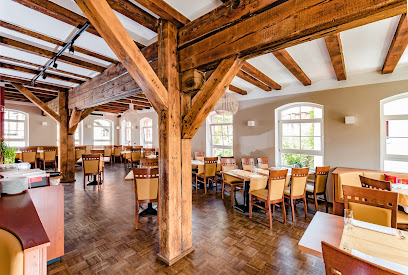
Kromer's Restaurant & Gewölbekeller
Experience authentic German flavors at Kromer's Restaurant & Gewölbekeller in Erfurt - where tradition meets taste in a charming atmosphere.
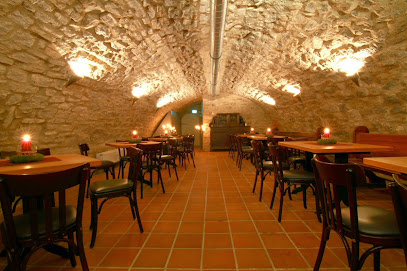
Haus zum Naumburgischen Keller
Discover Haus zum Naumburgischen Keller: A gem in Erfurt serving traditional German fare and local beers in a charming setting.
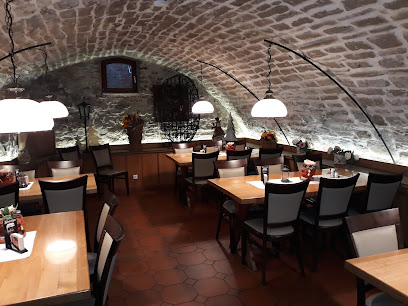
Zum Wenigemarkt 13
Discover authentic Thuringian cuisine at Zum Wenigemarkt 13, where tradition meets flavor in the heart of Erfurt's Altstadt.
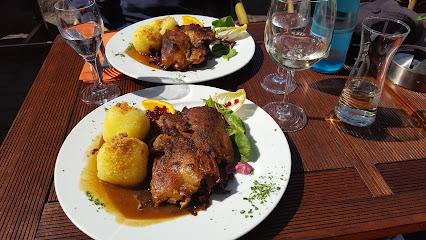
Wirtshaus am Dom
Discover authentic Thuringian cuisine at Wirtshaus am Dom in Erfurt – where tradition meets flavor in a historic setting.
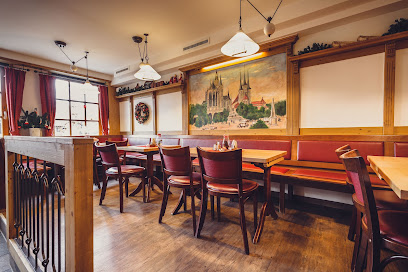
EAT Erfurt
Experience the heartwarming flavors of soul food at EAT Erfurt - where culinary tradition meets modern flair.
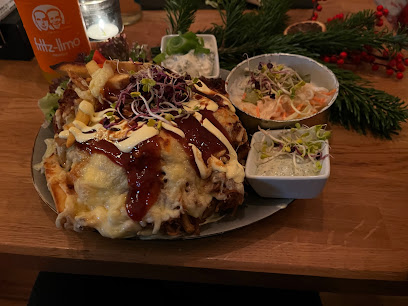
Hungarica
Experience authentic Hungarian cuisine in Erfurt at Hungarica - where every dish tells a story.
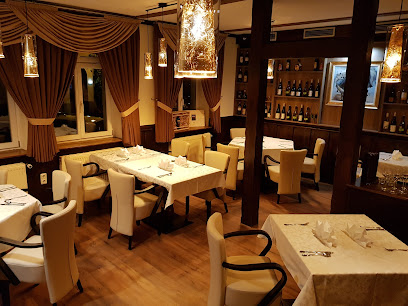
Markets, malls and hidden boutiques
ANGER 1 Erfurt
Experience the best shopping in Erfurt at Anger 1, where style meets convenience in a vibrant mall atmosphere.
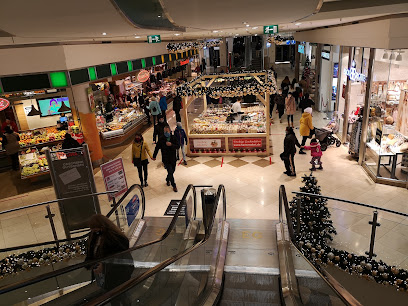
Breuninger Erfurt
Explore the fashion-forward Breuninger Erfurt, a premier department store offering a variety of clothing and accessories in the heart of the city.
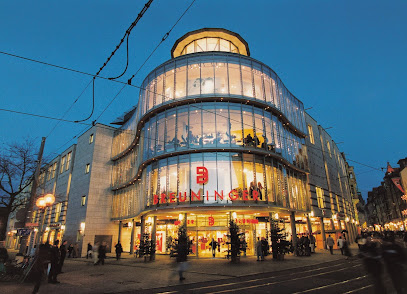
C&A
Explore C&A in Erfurt for trendy clothing and affordable fashion for the whole family in a stylish, inviting environment.
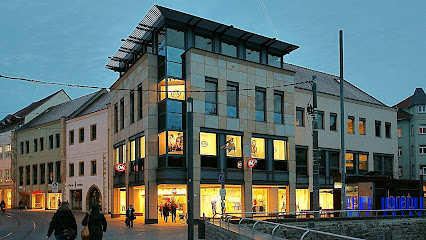
Zara
Explore Zara in Erfurt for trendy clothing and a stylish shopping experience in the heart of the city.
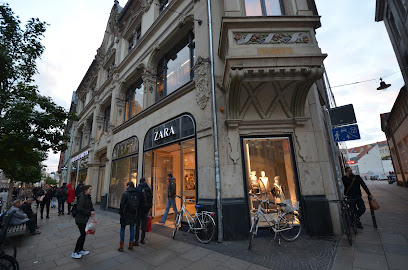
H&M
Explore the latest fashion trends for the whole family at H&M Erfurt, where style meets affordability in a vibrant shopping atmosphere.
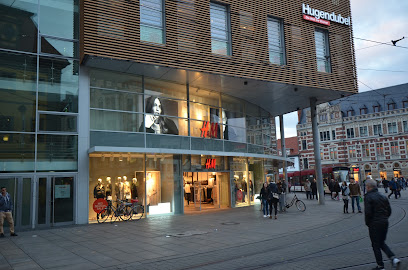
NEW YORKER
Discover the latest fashion trends at NEW YORKER in Erfurt, offering clothing and accessories for every style and age group.
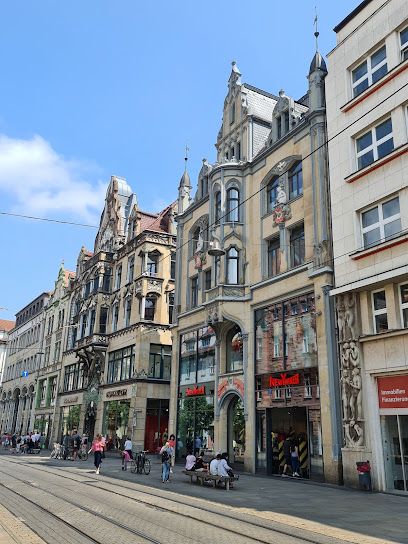
Elbenwald
Discover Elbenwald in Erfurt, a fantastical gift shop filled with clothing, toys, and collectibles inspired by your favorite fantasy franchises.
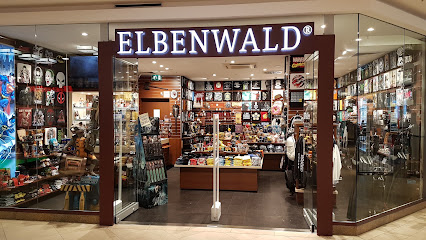
LUSH Cosmetics Erfurt
Explore LUSH Cosmetics in Erfurt for a delightful array of handmade beauty products, gifts, and sustainable practices that enchant every visitor.
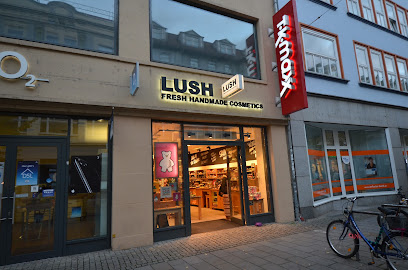
Flying Tiger Copenhagen
Explore Flying Tiger Copenhagen in Erfurt for unique gifts, creative home goods, and delightful surprises that capture the spirit of fun and imagination.
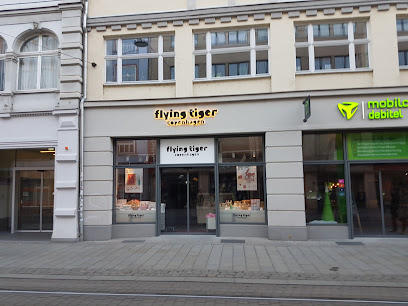
Echtjuterladen
Explore the unique vintage finds and cozy café experience at Echtjuterladen in Erfurt's charming Altstadt.
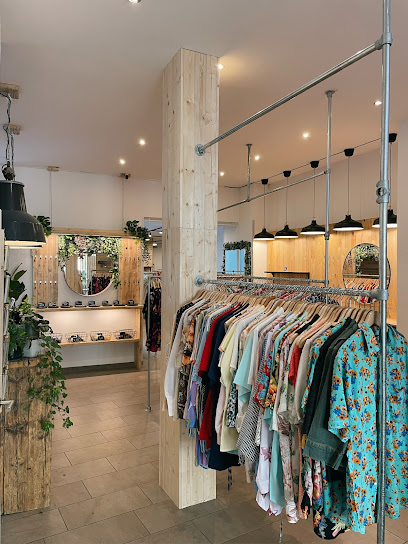
G-Star RAW Store
Explore the G-Star RAW Store in Erfurt for stylish denim and accessories that combine modern trends with sustainable fashion.
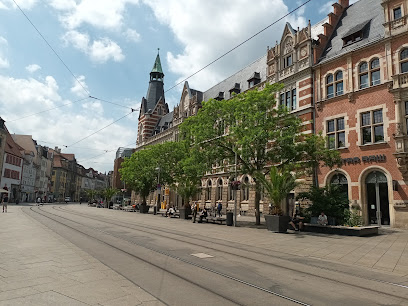
Nanu-Nana
Explore Nanu-Nana in Erfurt for unique gifts, home goods, and creative craft supplies that capture the spirit of your journey.
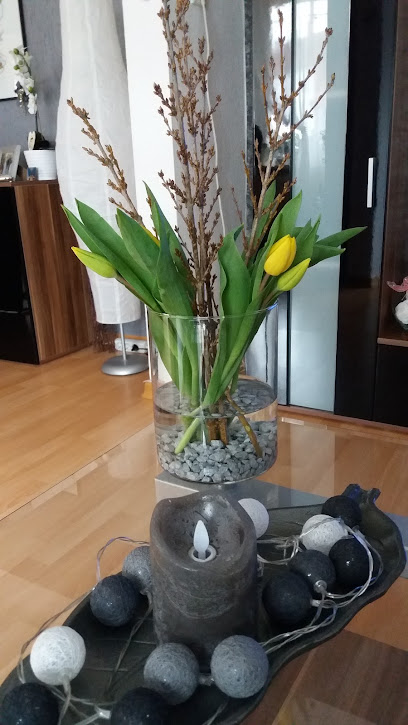
Lindt Boutique Erfurt
Discover the sweet essence of Erfurt at Lindt Boutique, where premium chocolates await every visitor.
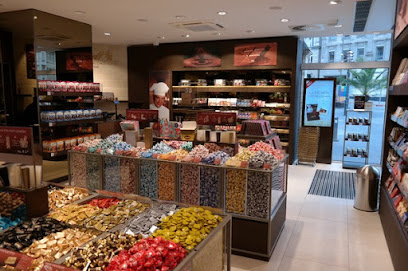
Esprit Store Erfurt
Explore the Esprit Store in Erfurt for stylish clothing and accessories that blend fashion with affordability in a vibrant shopping atmosphere.
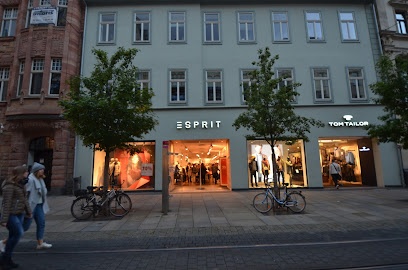
STRIKE Store
Explore the charm of vintage fashion in Erfurt at STRIKE Store, where every piece tells a unique story.
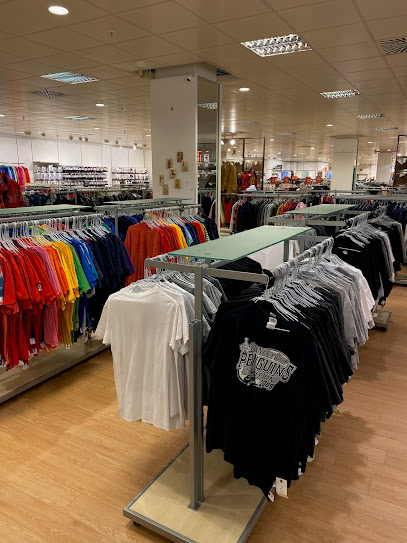
Essential bars & hidden hideouts
Dubliner Irish Pub
Discover the vibrant atmosphere and authentic Irish cuisine at Dubliner Irish Pub in Erfurt, where every visit feels like a trip to Ireland.
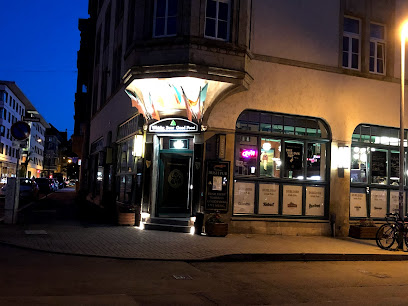
Molly Malone Irish Pub
Immerse yourself in the lively atmosphere of Molly Malone Irish Pub, where authentic Irish culture meets the heart of Erfurt.
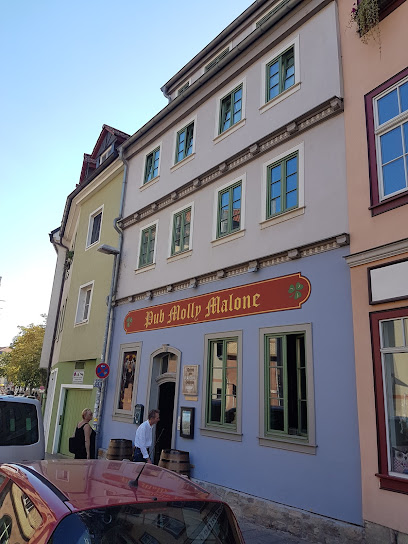
Hemingway Bar & Lounge - Erfurt
Discover the charm of Hemingway Bar & Lounge in Erfurt, where exquisite cocktails meet a cozy atmosphere in the heart of the city.
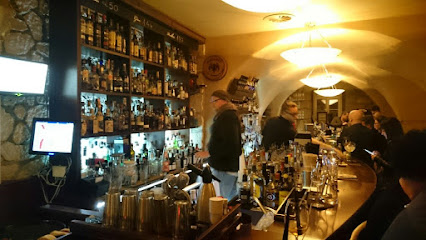
Patricks Irish Pub - Erfurt
Discover the warmth and flavors of Ireland at Patricks Irish Pub in Erfurt, where every visit feels like coming home.
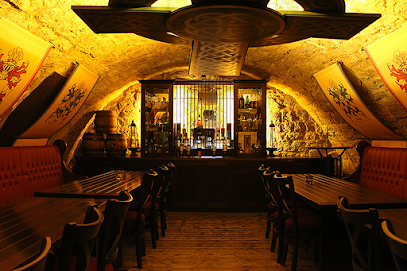
Speicher - Erfurt
Experience the vibrant nightlife of Erfurt at Speicher, a trendy bar offering an extensive drink menu and a lively atmosphere for all to enjoy.
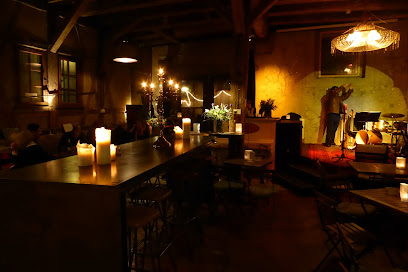
Tarantula - Erfurt
Experience the vibrant nightlife of Erfurt at Tarantula, a lively bar offering a diverse drink menu and a friendly atmosphere.
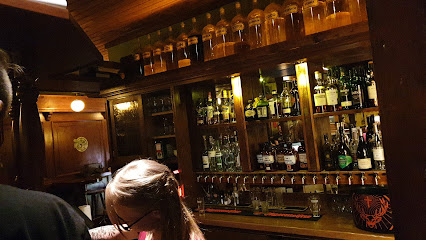
HAVANA BAR ERFURT am Hirschgarten
Experience the vibrant atmosphere of Havana Bar Erfurt, where Cuban cocktails and cuisine meet the heart of Germany's historic Altstadt.
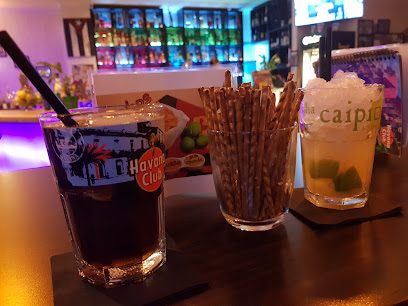
MODERN MASTERS Bar & Lounge
Discover the vibrant nightlife at MODERN MASTERS Bar & Lounge in Erfurt, where eclectic drinks meet a lively atmosphere for an unforgettable evening.
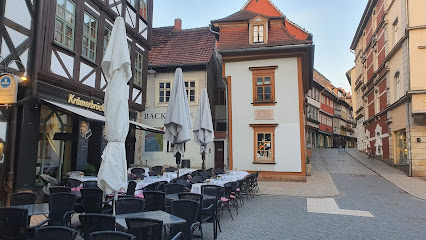
Karibik Bar - Erfurt
Experience the vibrant nightlife of Erfurt at Karibik Bar, where exotic cocktails meet local brews in a tropical atmosphere.
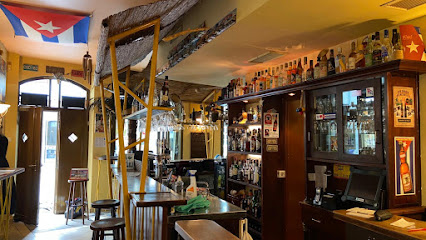
Whiskey Pub Johnny Worker - Erfurt
Discover the charm of Whiskey Pub Johnny Worker in Erfurt, a cozy haven for whiskey lovers and nightlife enthusiasts alike.
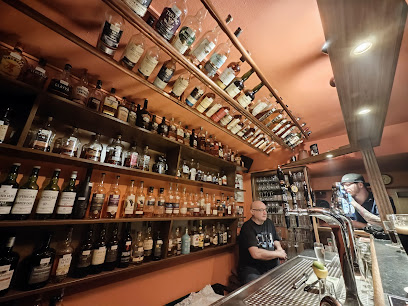
Heartbeat Oldieclub Lutz Herbach - Erfurt
Discover the nostalgic vibe and vibrant nightlife at Heartbeat Oldieclub Lutz Herbach in Erfurt, where classic tunes and great company await.
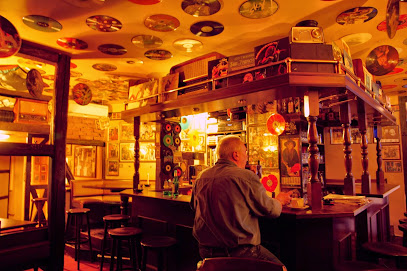
Daheym
Experience the heart of Erfurt's nightlife at Daheym, a cozy pub offering local brews and a vibrant atmosphere.
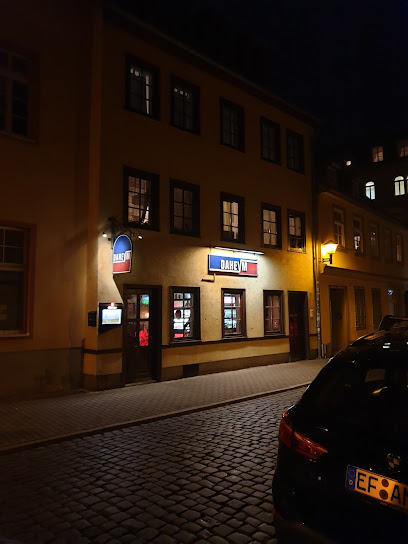
Bar Zwiesel - Erfurt
Experience the vibrant cocktail culture at Bar Zwiesel in Erfurt, where creative drinks meet a lively atmosphere for an unforgettable night out.
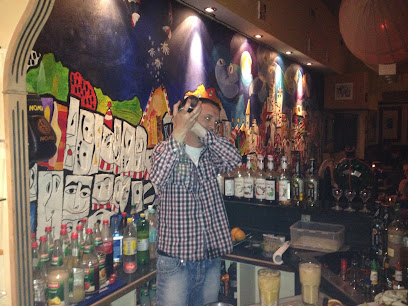
WeinArche UG - Erfurt
Experience the best of local and international wines at WeinArche UG, a cozy wine bar in Erfurt's historic Altstadt.
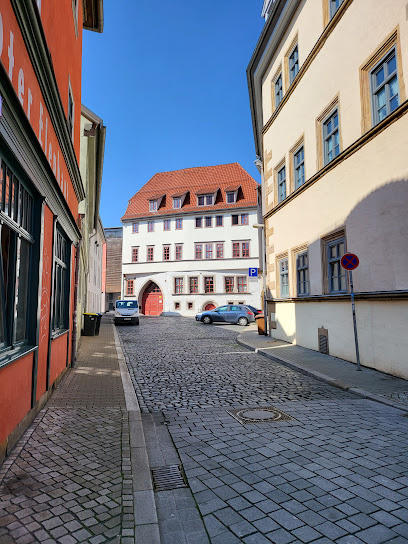
Ckb Cafe Art Bar
Discover the artistic flair and vibrant atmosphere of Ckb Cafe Art Bar in Erfurt, where creativity meets delightful beverages.
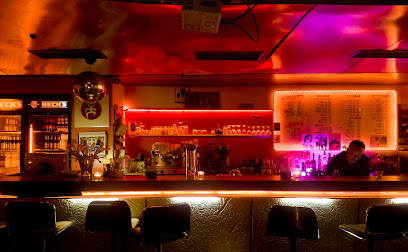
Local Phrases
-
- HelloHallo
[ha-lo] - GoodbyeAuf Wiedersehen
[owf vee-der-zay-en] - YesJa
[ya] - NoNein
[nine] - Please/You're welcomeBitte
[bih-tuh] - Thank youDanke
[dahn-kuh] - Excuse me/SorryEntschuldigung
[ent-shool-di-gung] - How are you?Wie geht es dir?
[vee gayt es deer] - Fine. And you?Gut. Und du?
[goot oont doo] - Do you speak English?Sprechen Sie Englisch?
[shpre-khen zee eng-lish] - I don't understandIch verstehe nicht
[ikh fer-shtay-uh nikht]
- HelloHallo
-
- I'd like to see the menu, pleaseIch würde gerne die Speisekarte sehen, bitte
[ikh vur-deh gair-nuh dee shpi-zuh-kahr-teh zay-en, bih-tuh] - I don't eat meatIch esse kein Fleisch
[ikh es-uh kine fly-sh] - Cheers!Prost!
[prohst] - I would like to pay, pleaseIch möchte bitte bezahlen
[ikh muhkh-teh bih-tuh beh-tsah-len]
- I'd like to see the menu, pleaseIch würde gerne die Speisekarte sehen, bitte
-
- Help!Hilfe!
[hil-feh] - Go away!Geh weg!
[geh vehg] - Call the Police!Rufen Sie die Polizei!
[roo-fen zee dee po-lee-tsai] - Call a doctor!Rufen Sie einen Arzt!
[roo-fen zee eye-nen ahrts] - I'm lostIch habe mich verirrt
[ikh hah-buh mikh feh-rirt] - I'm illIch bin krank
[ikh bin krank]
- Help!Hilfe!
-
- I'd like to buy...Ich möchte kaufen...
[ikh muhkh-teh kow-fen] - I'm just lookingIch schaue nur
[ikh shou-uh noor] - How much is it?Wie viel kostet es?
[vee feel kohs-tet es] - That's too expensiveDas ist zu teuer
[dahs ist tsoo toy-er] - Can you lower the price?Können Sie den Preis senken?
[kuhr-nen zee den preis zeng-ken]
- I'd like to buy...Ich möchte kaufen...
-
- What time is it?Wie spät ist es?
[vee shpate ist es] - It's one o'clockEs ist ein Uhr
[es ist iyn oor] - Half past (10)Halb (zehn)
[halb tsayn] - MorningMorgen
[mohr-gen] - AfternoonNachmittag
[nahk-mee-tahk] - EveningAbend
[ah-bent] - YesterdayGestern
[gehs-tern] - TodayHeute
[hoy-teh] - TomorrowMorgen
[mohr-gen] - 1Eins
[ayns] - 2Zwei
[tsvay] - 3Drei
[dry] - 4Vier
[feer] - 5Fünf
[foonf] - 6Sechs
[zeks] - 7Sieben
[zee-ben] - 8Acht
[ahkt] - 9Neun
[noyn] - 10Zehn
[tsayn]
- What time is it?Wie spät ist es?
-
- Where's a/the...?Wo ist ein/der...?
[vo ist iyn/der] - What's the address?Was ist die Adresse?
[vas ist dee ah-dreh-suh] - Can you show me (on the map)?Können Sie mir zeigen (auf der Karte)?
[kuhr-nen zee meer tsay-gen (owf der kar-teh)] - When's the next (bus)?Wann kommt der nächste (Bus)?
[vann kohmt der nekhs-teh] - A ticket (to ....)Eine Fahrkarte (nach ....)
[iyn-uh fahr-kahr-teh (nahkh)]
- Where's a/the...?Wo ist ein/der...?
History of Erfurt
-
Erfurt, the capital of Thuringia in Germany, was first mentioned in 742 AD when Saint Boniface established the Diocese of Erfurt. The city's strategic location at the crossroads of important trade routes facilitated its growth as a major commercial and religious hub during the Middle Ages.
-
During the Middle Ages, Erfurt became one of the most prosperous cities in the Holy Roman Empire. It was part of the Hanseatic League, a commercial and defensive confederation of merchant guilds. The city's wealth was largely built on woad, a plant used to produce blue dye, which was a valuable commodity at the time.
-
Founded in 1379, the University of Erfurt is one of the oldest universities in Germany. It was a center of humanist thought and education during the Renaissance. The university was dissolved in 1816 but re-established in 1994, continuing its legacy as a prestigious academic institution.
-
Erfurt played a significant role in the life of Martin Luther, the initiator of the Protestant Reformation. Luther attended the University of Erfurt, earning his master's degree in 1505. He later entered the Augustinian Monastery in Erfurt, where he spent several formative years before his pivotal role in the Reformation.
-
In 1850, Erfurt hosted the Erfurt Union Parliament, an assembly aimed at creating a unified German state under Prussian leadership. Although the effort ultimately failed, it was a significant event in the movement towards German unification, which was achieved later in 1871.
-
Erfurt, like many German cities, suffered extensive damage during World War II due to Allied bombing raids. The city was occupied by American forces in April 1945 before being handed over to Soviet control. Reconstruction efforts in the post-war period were substantial, and many historic buildings were restored to their former glory.
-
Erfurt is renowned for its well-preserved medieval city center, including the impressive Erfurt Cathedral and the Church of St. Severus. The Krämerbrücke, a medieval bridge lined with half-timbered buildings, is one of the few remaining inhabited bridges in Europe. These architectural landmarks, along with numerous museums and cultural institutions, make Erfurt a vibrant center of historical and cultural heritage.
Erfurt Essentials
-
Erfurt is centrally located in Germany and can be easily accessed by various modes of transportation. The nearest major airport is Leipzig/Halle Airport, approximately 140 kilometers away, with connections to Erfurt via train or car. Frankfurt Airport and Berlin Brandenburg Airport are also viable options, offering extensive international connections. Erfurt's central train station (Hauptbahnhof) is well-connected with high-speed ICE trains from major German cities such as Berlin, Frankfurt, and Munich. For those driving, the A4 and A71 motorways provide convenient access to the city.
-
Erfurt has an efficient public transportation system, including trams and buses managed by EVAG (Erfurter Verkehrsbetriebe AG). Tickets can be purchased at vending machines, online, or via the EVAG app. For short distances, walking or cycling are excellent options due to the city's compact size and well-maintained pathways. Taxis and ride-sharing services are also readily available. Car rentals are available for those wishing to explore the Thuringian countryside.
-
The official currency in Germany is the Euro (EUR). Credit and debit cards are widely accepted in hotels, restaurants, and larger shops. However, it is advisable to carry some cash, especially when visiting smaller establishments or markets. ATMs are plentiful throughout Erfurt, and most will accept international cards. Contactless payment methods are also becoming increasingly popular.
-
Erfurt is generally a safe city for tourists. Standard precautions should be taken, such as avoiding poorly lit areas at night and keeping an eye on personal belongings in crowded places. While Erfurt has no specific high-crime areas targeting tourists, it's wise to stay vigilant, particularly around the main train station and in busy tourist spots. Emergency services can be reached by dialing 112 for immediate assistance.
-
In case of an emergency, dial 112 for ambulance, fire, or police services. The city has several hospitals and clinics, including the Helios Klinikum Erfurt, which provides comprehensive medical services. Pharmacies (Apotheken) are available throughout the city, and some offer 24-hour service. It's advisable to have travel insurance that covers medical emergencies. For minor health issues, over-the-counter medications are readily available.
-
Fashion: Do dress comfortably but neatly; casual attire is generally acceptable, but avoid overly revealing clothing. Religion: Do respect religious sites by dressing modestly and keeping noise to a minimum. Public Transport: Do validate your ticket before boarding and offer your seat to elderly passengers. Don’t eat or drink on public transport. Greetings: Do greet people with a handshake and maintain eye contact. A simple 'Guten Tag' (Good Day) is polite. Eating & Drinking: Do try local Thuringian specialties like bratwurst and potato dumplings. Don’t leave a tip on the table; instead, tell the server the total amount you wish to pay, including the tip.
-
To experience Erfurt like a local, start your day with a visit to the Krämerbrücke, a medieval bridge lined with shops and cafes. Explore the weekly markets at Domplatz for fresh produce and local goods. Take a leisurely stroll through the Egapark, a beautiful horticultural garden. Attend a performance at the Erfurt Theater or a concert at the Alte Oper. Engage with locals over a beer at a traditional beer garden or a cozy pub. Don't miss the annual Christmas market, one of the most charming in Germany, held in the heart of the city.
Nearby Cities to Erfurt
-
Things To Do in Leipzig
-
Things To Do in Wurzburg
-
Things To Do in Karlovy Vary
-
Things To Do in Nuremberg
-
Things To Do in Hannover
-
Things To Do in Rothenburg ob der Tauber
-
Things To Do in Dresden
-
Things To Do in Frankfurt
-
Things To Do in Potsdam
-
Things To Do in Plzeň
-
Things To Do in Berlin
-
Things To Do in Heidelberg
-
Things To Do in Koblenz
-
Things To Do in Munster
-
Things To Do in Prague
















